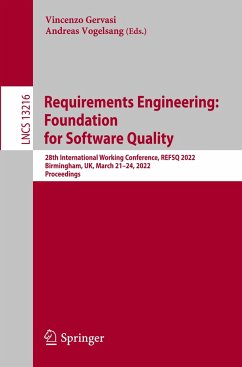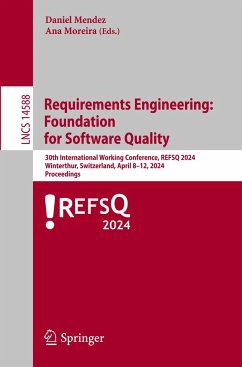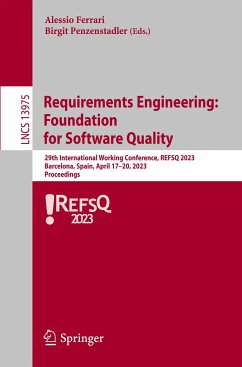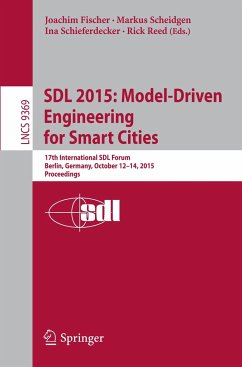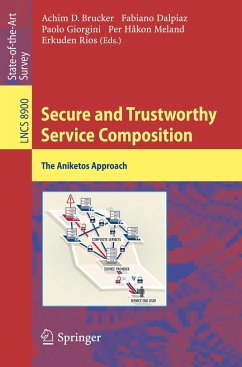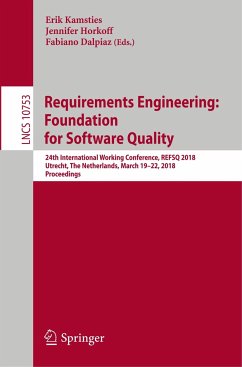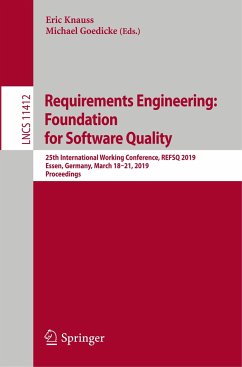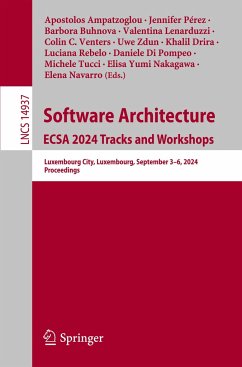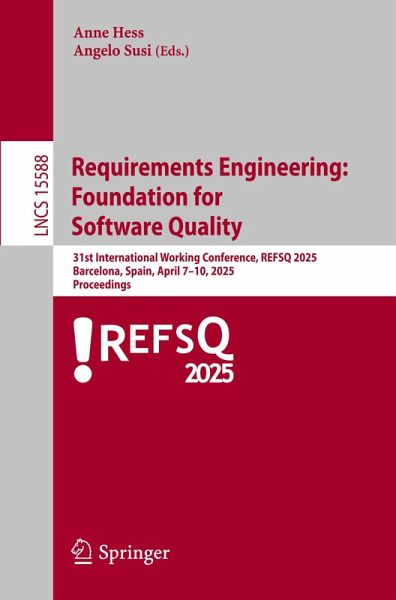
Requirements Engineering: Foundation for Software Quality
31st International Working Conference, REFSQ 2025, Barcelona, Spain, April 7-10, 2025, Proceedings
Herausgegeben: Heß, Anne; Susi, Angelo

PAYBACK Punkte
49 °P sammeln!
This book constitutes the refereed proceedings of the 31st International Working Conference on Requirements Engineering: Foundation for Software Quality, REFSQ 2025, held in Barcelona, Spain, during April 7 10, 2025.The 21 full papers and 8 short papers included in this book were carefully reviewed and selected from 74 submissions. They were organized in topical sections as follows: Responsible RE; Crowd and Large-Scale RE; Requirements Modeling; Requirements Elicitation and Analysis; Participatory RE; RE for Safety-critical and Autonomous Systems; and Requirements Quality Assurance.
This book constitutes the refereed proceedings of the 31st International Working Conference on Requirements Engineering: Foundation for Software Quality, REFSQ 2025, held in Barcelona, Spain, during April 7 10, 2025.
The 21 full papers and 8 short papers included in this book were carefully reviewed and selected from 74 submissions. They were organized in topical sections as follows: Responsible RE; Crowd and Large-Scale RE; Requirements Modeling; Requirements Elicitation and Analysis; Participatory RE; RE for Safety-critical and Autonomous Systems; and Requirements Quality Assurance.
The 21 full papers and 8 short papers included in this book were carefully reviewed and selected from 74 submissions. They were organized in topical sections as follows: Responsible RE; Crowd and Large-Scale RE; Requirements Modeling; Requirements Elicitation and Analysis; Participatory RE; RE for Safety-critical and Autonomous Systems; and Requirements Quality Assurance.



